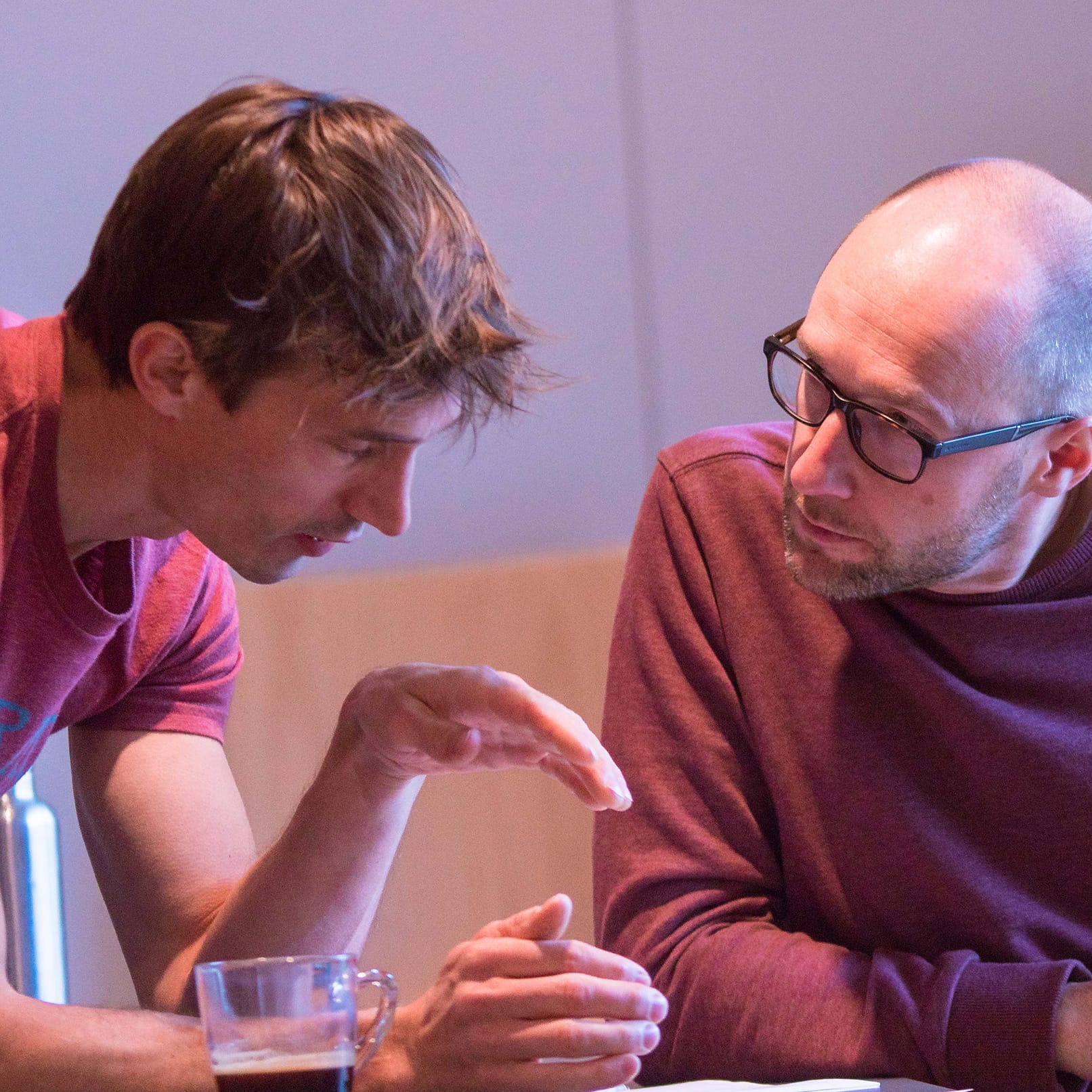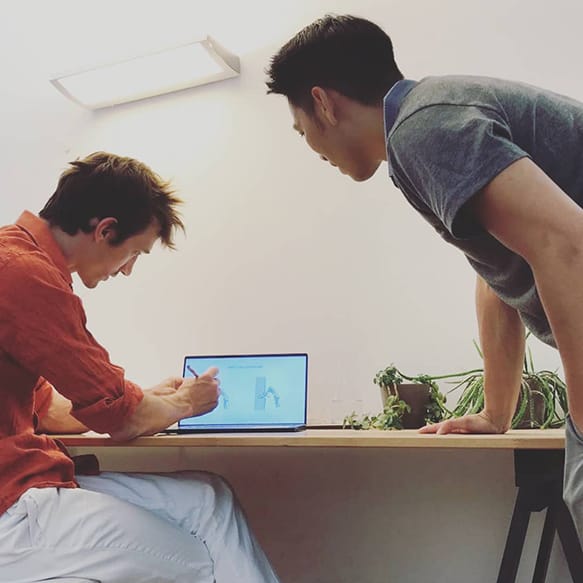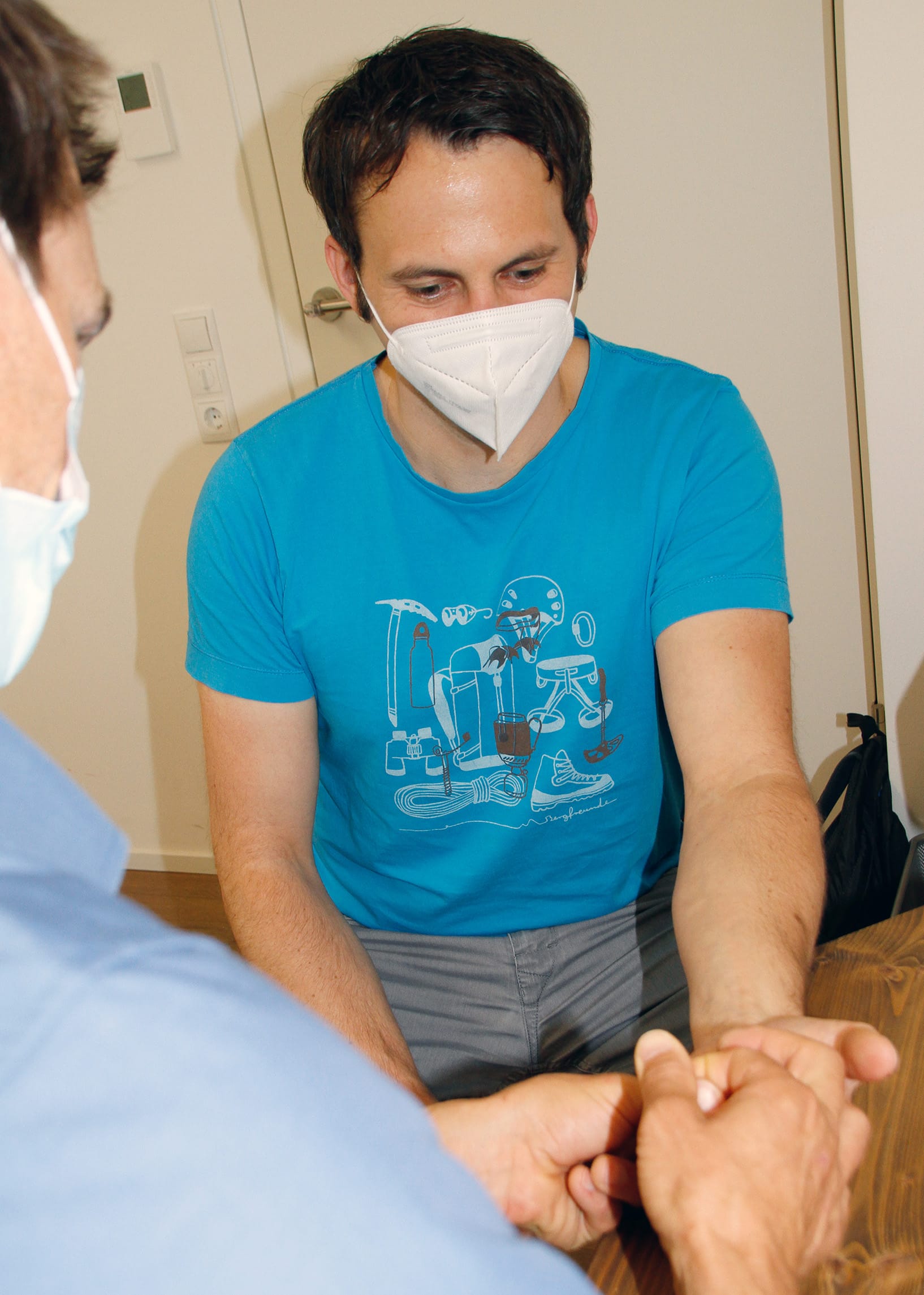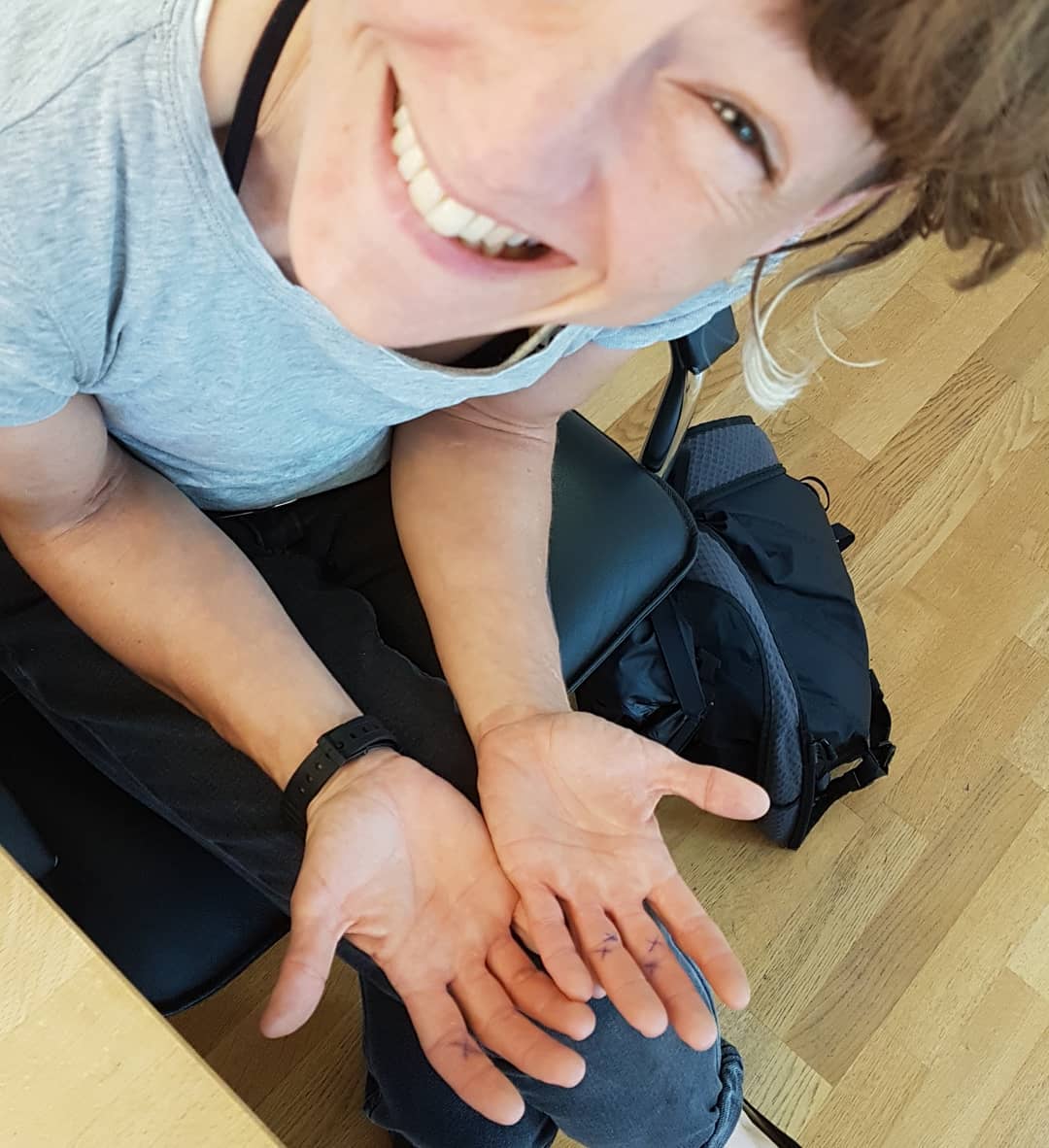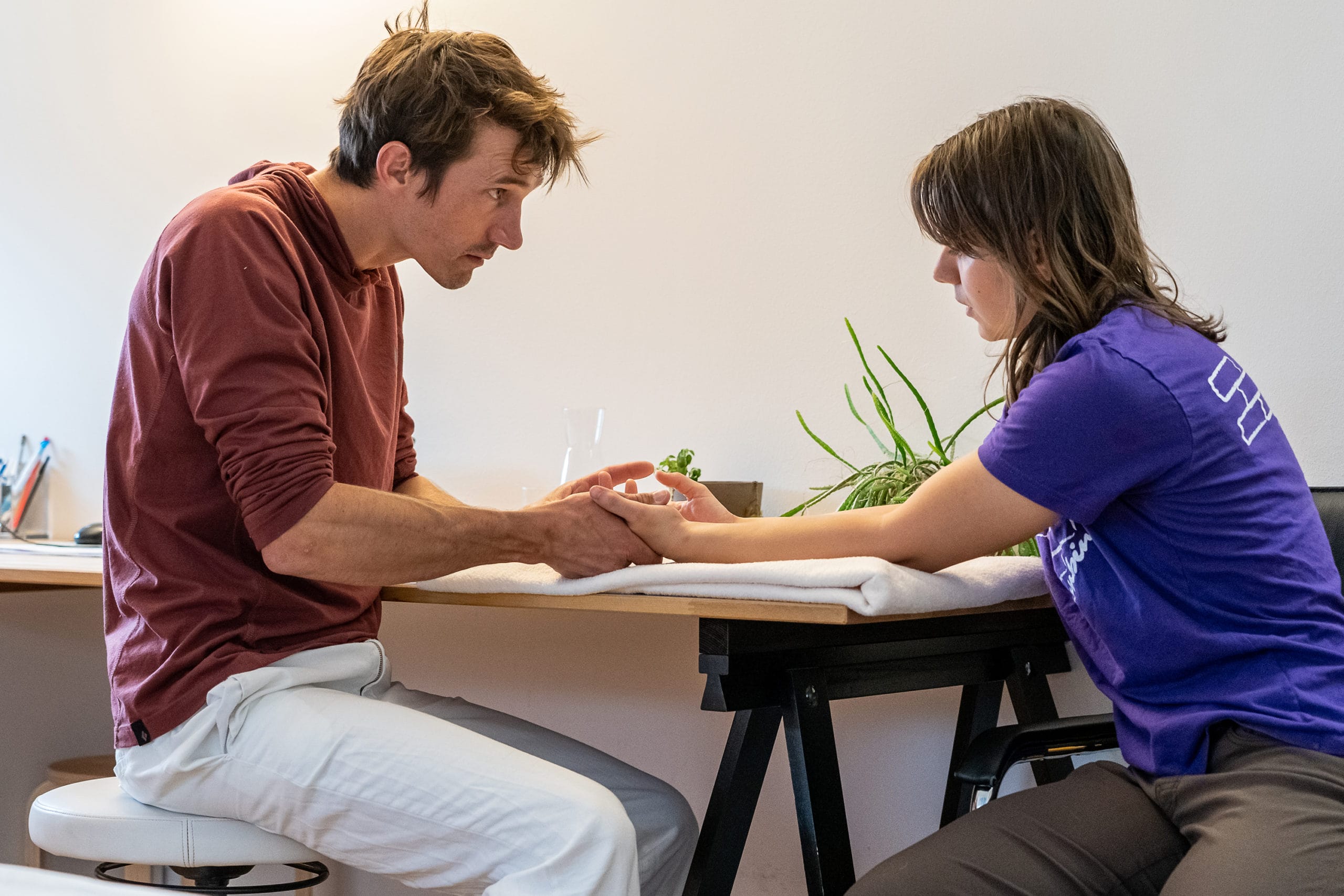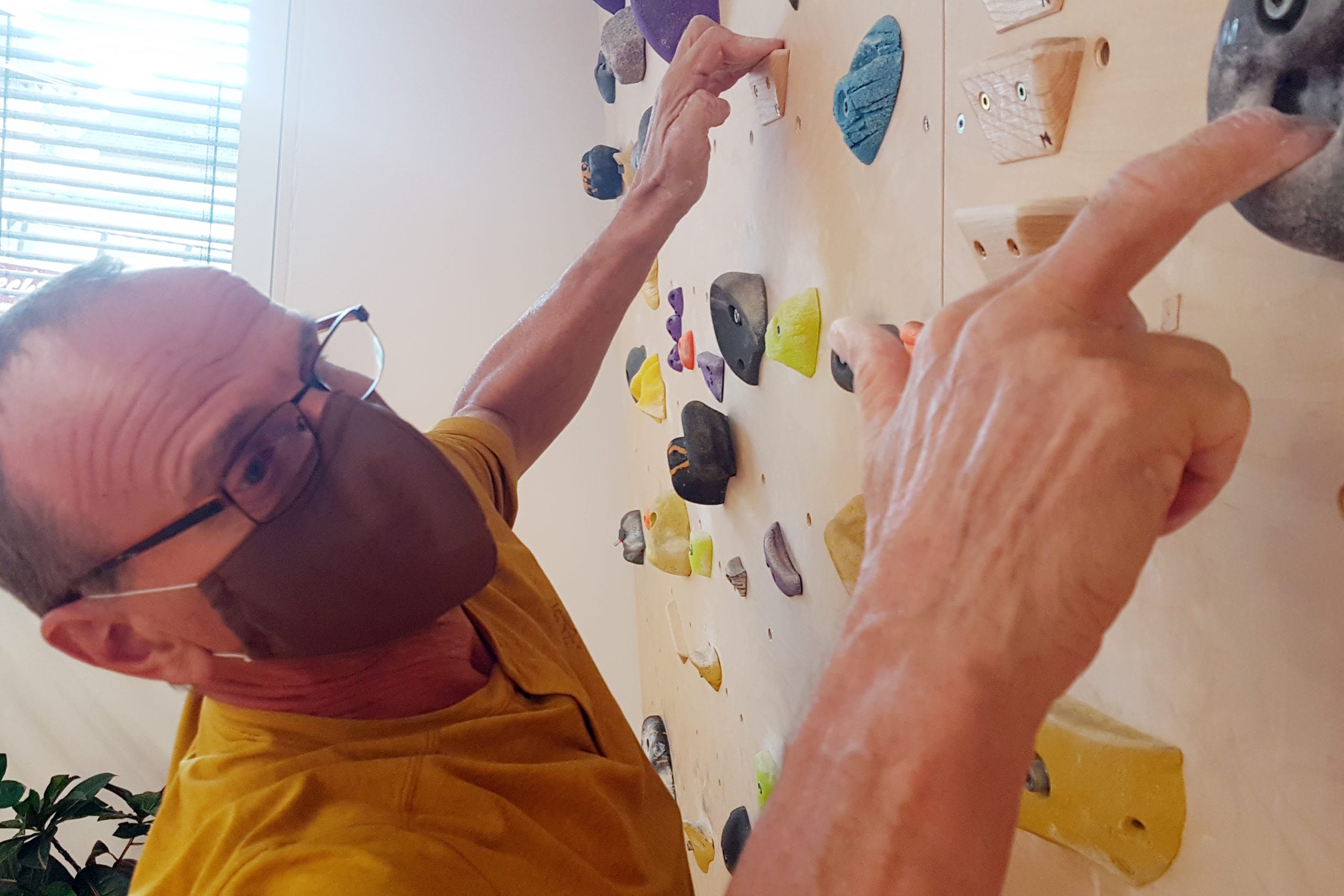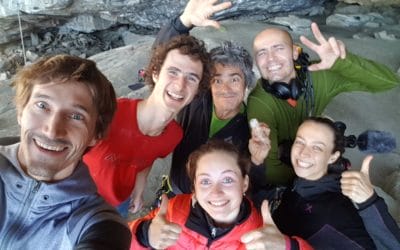I love to treat, teach and to increase life qualities.
Teaching
Isele-method Courses
Since 2019 I teach the Isele-method to physiotherapists and osteopaths.
Within 2 days filled with theory and practice the Basic Course is completed.
Giving Workshops and Lectures
Over the past years I held workshops and lectures on the topics of injury prophylaxis in sport climbing. You can book me for a lecture or find future dates to attend a course.
Upcoming Isele-method Course:
Basic Course:
As soon as a date has been set, it will be announced here.
Advanced Course:
As soon as a date has been set, it will be announced here.
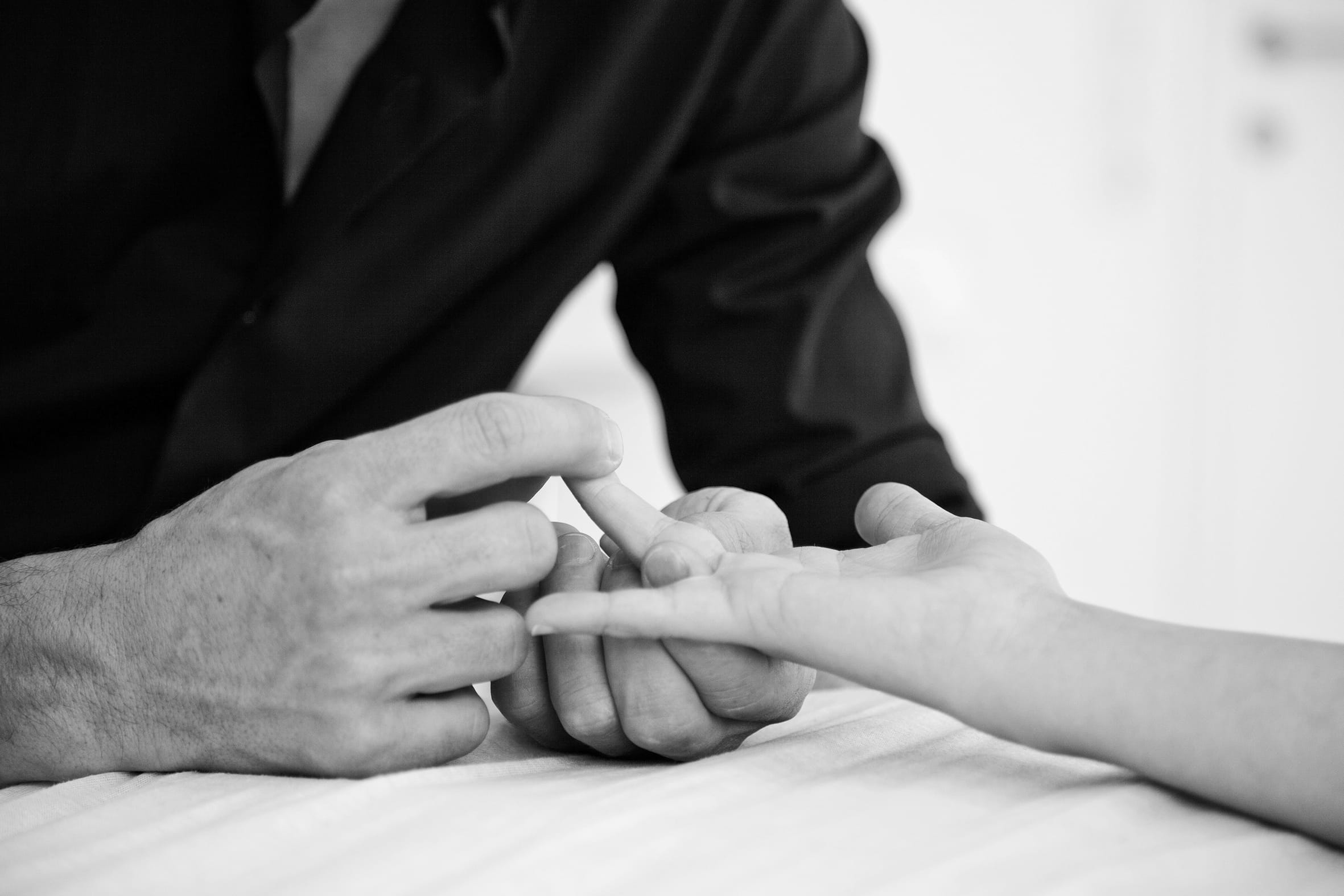
Conservative Method to Treat Finger Complaints
The Isele-method is a conservative, local-osteopathic method to treat finger complaints – especially climber’s fingers.
Who I Am and My Philosophy
Evidence-based plus experience-based knowledge
I am a supporter of the individual norm of the patient. I believe in anatomy and physiology and individually adapted treatment. There is no perfect treatment. I think that we must listen to our patients very attentive. My background as osteopath, physiotherapist and state-approved climbing trainer of course influences my approach on how I deal with climbing related problems. Bringing a human being back to health does not only include a physical examination, it involves understanding the patient, his sozialisation, his lifestyle in order to get the full image of each person.
You are currently viewing a placeholder content from YouTube. To access the actual content, click the button below. Please note that doing so will share data with third-party providers.
Frequently Asked Questions
What should I do when I hear my finger popping?
Cool it, compress it and elevate it. Keep your finger straight and see a doctor or physio of your trust.
Can I continue climbing although my finger hurts?
This is a delicate and not easy to answer question. It all depends on the pain quality, intensity and when it occurs.
Generally said patients who come for a treatment at an early stadium will have a minimum number of treatments and the best chances for a full recovery.
Be smart and listen to your body early.
Are there some exercises which I can do as a prophylaxis?
No there is no general advice which would fit for every climber. But yes, it makes sense after you have been examined by a climbing affine therapist.
How long do I have to take a break after a single pulley rupture?
This is different for every climber. Pain and swelling are crucial for the duration. Also you have decide between two treatment methods which influence the break time.
I only feel pain in my finger after climbing. What should I do?
See an Isele-method practitioner. If you catch it early it won’t get as bad and your performance will rise faster.
Which tape is the best to support my fingers?
There is no tape that supports the flexor tendons like the pulleys do. But it does make sense in certain cases to use different taping methods for a limited time during the observed rehab process.
Be aware that taping can have a negative influence on your finger problem.
If I book you for a lecture or workshop can you adjust the topic?
Yes. Get in contact with us.
Do I need to take a climbing break after an Isele-method treatment?
In most cases a climbing break of 48 hours is required.
Book me for a lecture
My work with Adam Ondra
You are currently viewing a placeholder content from YouTube. To access the actual content, click the button below. Please note that doing so will share data with third-party providers. More Information
You are currently viewing a placeholder content from YouTube. To access the actual content, click the button below. Please note that doing so will share data with third-party providers. More Information
I was working with the exceptional athlete Adam Ondra for two years. The goal of this collaboration was to keep him injury-free and to improve his climbing, especially to help him making progress in his former 9c project in Flatanger – called Silence.
Adam is a very unique athlete because first he is an extremely motivated climber with extraordinary flexibility skills and second he has the important focus and the ability to implement movements.
Seen from my perspective as physio there were two major challenges during this time: the recovery after his ground fall in Spain and the work on “Silence”. For my task to support this athlete I had to “study” him, his anatomy, his exceptionalities and skills. With “Silence” the development of the visualization concept went hand in hand – a tool of keeping athletes fit during a break caused from injury or illness. The aim is to lose little muscle mass and not to forget movement patterns. The route is re-climbed in the mind with eyes closed, but with physical intensity, and thus internalised down to the smallest detail. In terms of the special features and challenges of the route “Silence” with its unusual move feet forward and the upside down resting positions exercises had to be adapted and specific muscles had to be trained. The work paid off.
Silence (9c)
While I’m writing this I am already sitting in the plane back home to my family. Thank you Adam and the whole crew up in Flatanger for this extraordinary...
Project Hard, the 2nd
So that was it. 20 days in Norway are over, we left Flatanger and are back home already. This time my partner Anneliese and my son Lui-Jakob accompanied me. The time we had was great! (see photos...
Incredible India
If you have never been to Mumbai before it is probably quite a flash in the beginning. The noise, crowds, cars, TukTuks, food, the smell (which definitely takes some getting used to), the monsoon,...
I am looking forward to your inquiry.

